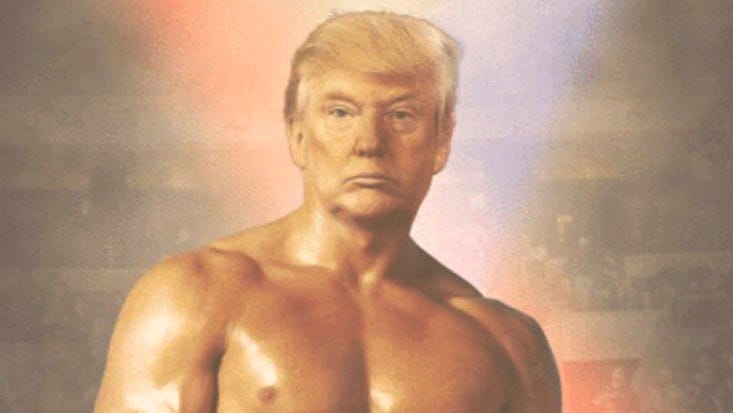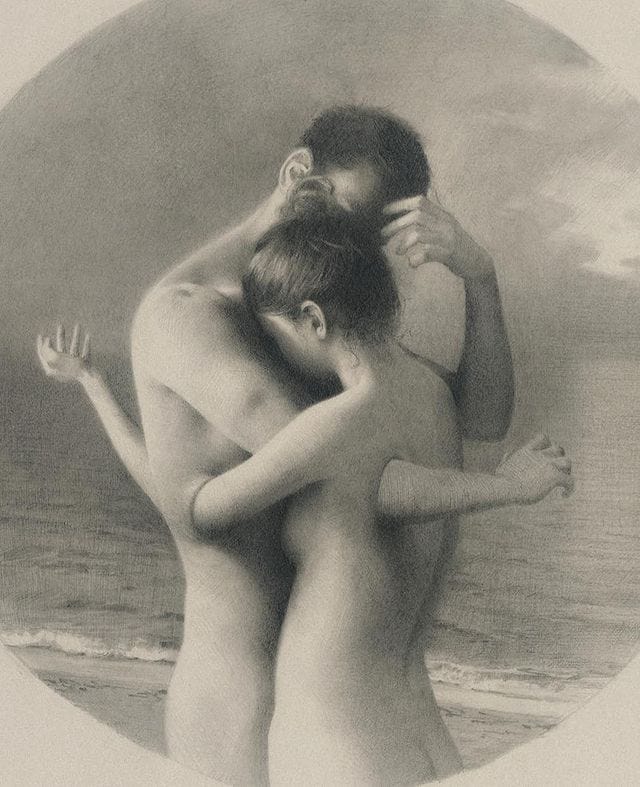Man up!
An imperative usually directed at boys/men, but often at girls/women too. Where “man” can refer to any number of things including overcoming fear, overcoming pretty much any other emotion, submitting to beer being poured directly down your throat through a tube, getting into a fight, pretending to be fine after getting brutally bashed in a fight, lifting a heavy thing, jumping out of an airplane, asking someone out on a date, doing something not very nice to someone else or killing a spider. I hold this singular phrase responsible for a lot.
But really it’s what lies behind the phrase that is responsible: the idea that there is a certain way to be a man. And that that way is good, is the desired way to be—not just for men but for all people. Men seem to be more stuck in it though, just as women are more stuck in stereotypes about femininity.
However, one of the perks of the big, long fight for gender equality is that women have spent the past few 100 years asking the question What does it mean to be a woman? A question as frustrating as it is fun, but one that at least opens up a massive conversation about it. Men haven’t had the same incentive to question the shit out of the role of man, which means that ideas about what it means to be a man are still pretty similar to ideas 100-or-so years ago: tall, strong, breadwinning, trouser-wearing, sex-obsessed, emotion-proof.
Both men and women are guilty of reinforcing these ideas. I (a woman) grew up with being told that I can be whoever I want to be: an astronaut, a physicist, a politician, an artist, etc. Boys got that too, but it didn’t include all the things that a girl might want to be: a dancer, a hairdresser, a carer, a parent or any other typically female profession. It was assumed that boys already had access to everything they wanted and now it was time for girls to join the club. Because why would boys/men want the lower-paid, softer, weaker stuff in a society that doesn’t value it?
In a sense, we’ve all had to man up, to get by, to get to the top. That’s pretty much the definition of how to succeed in the system we live in. The difference is that women are still free to fall back on the less “manly” things when they don’t feel like manning up, like when they need help lifting a heavy object or when they want to cry or talk about their emotions. (Although, of course, it’s frustrating when someone assumes that, because of your woman-ness, you can’t lift heavy objects, you can’t handle anything without crying and you always want to talk about your emotions.)
In the heterosexual dating world, this looks like a bunch of feminist women who still expect the men to be taller, stronger, have a good job, wear trousers, lean in for the first kiss and be all the manly things that men are traditionally supposed to be, whilst the same women refuse to conform to the equivalent “womanly” expectations that feminism did away with long ago.
It seems a little hypocritical. If we are supposed to accept women as complex, fully-rounded human beings (and, as we know, many men are still coming to terms with this) then we ought to also accept men as beings just as complex and fully-rounded as women are. Men who are unambitious, men who cry, men who are soft, men who dress feminine, men who wear make-up, men who talk about their emotions, men who look after their parents, men who want kids, men who post sexy selfies of themselves on Instagram. We love it when gay men do this. We ought to love it when straight men do it too—and not just in drag contests, but in our day-to-day lives.
I’m not saying feminist women are to blame—it’s men that have to take those brave first steps, as indeed some already are—but I do think that a lot of feminism still focusses on women getting everything men have, when perhaps it is now time to focus on all of us getting to be free of the nonsense that is patriarchy. It’s the system that’s fucked up, not the so-called “womanly” things.
It’ll happen, someday. Generation by generation, we’re getting incrementally better at seeing people as people. Better at seeing that whatever someone’s body looks like, whatever their sexuality, we have far more in common than we do not. We all need to cry sometimes, just as we all need to rage and hit a punchbag (I’ve definitely been guilty of channelling my rage into white woman tears—the more acceptable emotion for someone who looks like me). The only thing we can really do is make space for all of it, in ourselves and others.
Here’s a related note in italics to break up the non-italicised text:
I look at a photo of you flexing and it suddenly dawns on me that you are a man. Then it dawns on me that I didn’t and still don’t see you as a man. Nor as a boy. Just a person, I guess, no stronger or weaker than me. Perhaps that’s because I have always equated “man” to “someone stronger than me”. And by stronger I mean less weak, less emotional, less vulnerable than me. Things I never thought possible in a man and, worse, never sought out in a man, until now. You are teaching me that we’re all human, we’re all soft and hard.
If I were to gaze (hopefully) into my crystal ball, I’d say we are in the early phases of a monumental shift for humanity: a shift from the masculine energy that has dominated our species for so long, to the feminine.
That is not to say a matriarchy, and it is not to say goodbye to men à la SCUM Manifesto. Feminine and masculine are just words to describe two ways of being in the world. Yin and yang. We are all a bit of both and the magic lies in finding the balance. Feminine is not (I don’t think) the sticking out of the bum and sucking in the belly for an Instagram photo. I consider it to be a more soft and floppy thing, like yin yoga. Body parts are free to wobble and hang as they like, emotions free to spill out, in tune with nature—our own and the nature around us. Or something like that.
Optional toppings
🐋 From body insecurity to emotional repression, men share the problems they face in viral Twitter discussion prompted by Caitlin Moran when she tweeted, “What are the downsides of being a man?”
🎬 We are Miracles, a comedy set by Sarah Silverman where she talks about why we should stop telling girls they can be anything they want to be
🥊 Amateur: A True Story About What Makes a Man, a book by Thomas Page McBee
🧽 SCUM Manifesto is a famous text by Valerie Solanas which paints (somewhat satirically) the picture of a matriarchal takeover, published in 1967
🕳 @miles_art on Instagram
It’s over now. Feel free to cry.
— H. E.


